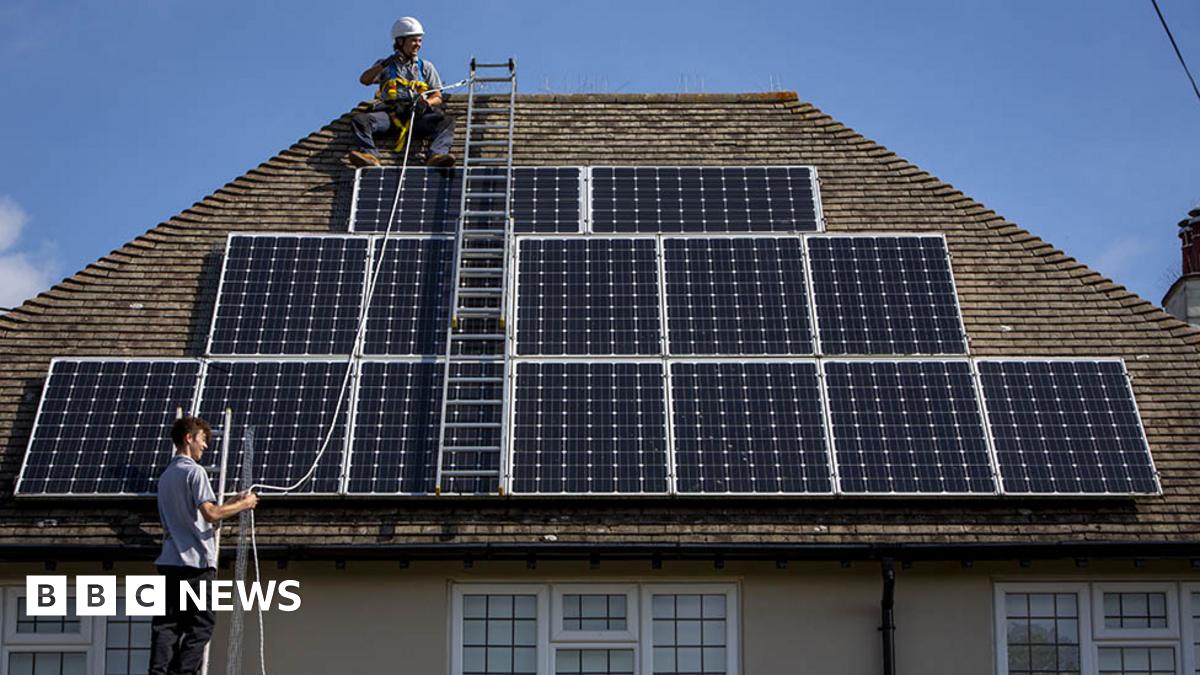The energy bills crisis has prompted a big rise in demand for solar panels.
Just over 3,000 solar installations are being carried out every week, according to trade association Solar Energy UK, up from 1,000 a week in July 2020.
One provider said this month it had seen
enquiries about solar panels rise tenfold.
"More solar panels are being put on British roofs than ever before," said Chris Hewett, chief executive of Solar Energy UK.
The fact that renewable energy helps protect the planet has always made it an attractive option.
The way they work is simple: the panels absorb sunlight through photovoltaic cells which convert it into electricity that can be flowed through your home, or into a battery.
The process significantly reduces the amount of electricity you will need from the network.
People who have successfully installed solar panels report saving hundreds of pounds on electricity bills.
But they are not the answer for everyone, as installing them means an upfront investment of thousands of pounds and you'll need the right type of property.
Soaring energy prices, however, have slashed the time taken to recoup your initial costs.
How much does it cost?
A decade ago a typical solar panel system cost around £20,000 and would take around a decade to cover those set-up costs.
But prices for solar panel systems have fallen by more than 60% since then, meaning it takes between four and five years for a system to pay for itself.
The price includes installation and the number of panels will depend on how much space you have on a roof. A typical 20sq m roof could hold 12 panels.
The Royal Institution of Chartered Surveyors suggests a standard solar panel system costs between £9,000 to £11,700, while Solar Energy UK lists the cost of a "typical" 3.1kWp system for a three-bed house as £3,925.
What you'll end up paying will depend on the size of the system, the type of panel you choose, the quality of components, the accessibility and state of repair of your roof, and the individual installer, says Which?
Not everyone will own a home that can benefit from solar energy, especially if you own a north-facing property, or your home is largely shaded.
"Solar panels are perfect for residential properties with a south, east or west-facing roof, preferably without any shading," says Mandip Bhamra, head of renewables at SaveMoneyCutCarbon.
"Depending on how old your house is, you may want to check your roof is structurally sound before fitting the solar panels onto it," says Brian Davenport, owner of The Solar Centre .
He says most installers will have access to a structural engineer for calculating the wind-load should a roof show any signs of distress.
"There should also be a small amount of room made available in your loft for the inverter, which is roughly the size of a microwave," he adds.
If you live in a flat you'd need to discuss the issue of installing solar panels with other residents and the freeholder.
"For a block of flats, most roofing should be fine, and with some flats where there is excess land, these can be placed in the ground too," says Mandip Bhamra.

